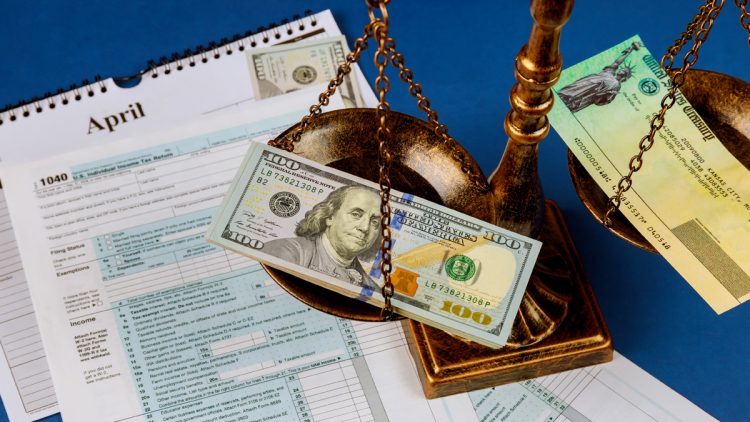How To Stop IRS Wage Garnishment
Wage garnishment is just one of several ways the IRS can collect your tax debt. If you owe the IRS, it’s crucial to understand how the wage garnishment process works and the steps you can take to stop it.
What Is Wage Garnishment?
Under federal law, the IRS can seize your income in an effort to retrieve any federal tax debt you may owe. This can include wages, bonuses, salary, and commissions. The IRS is able to garnish your wages without ever taking you to court.
The IRS is also able to take a higher amount of your wages than a private creditor can. Typically, the IRS will garnish more than 70% of your income. They have to leave just $375 from each of your paychecks so you can support yourself and household. If you are self-employed, however, the IRS can take all of your income.
Wage Garnishment Process
The IRS must follow a three-step process prior to taking any wages. Let’s take a look at this process below.
Written Notice
The first step of the process is sending a written notice ahead of any garnishment action. This notice will detail the amount you owe to the IRS.
It will include penalties and interest on top of the principal tax debt. The written notice will also give you a due date to pay off your balance. Essentially, this gives any individual the chance to stop wage garnishment before it begins.
Second Notice
The IRS will then send a second notice if you have not paid your full balance after the specified deadline. This “Final Notice of Intent to Levy” must be sent via registered or certified mail 30 days prior to wage garnishment.
Final Notice
The final notice includes a letter that informs an individual of their right to an appeal. You must file your appeal request within 30 days after the date of the Final Notice in order to hold onto certain other legal rights. You can also put a hold on any further IRS collection action pending the resolution of the appeal.
The IRS can begin garnishing your wages if you fail to take action by the end of the 30-day window. The IRS will require that your employer send a specified amount of your paycheck directly to their organization. Your employer must start within one pay period of receiving notice and continue doing so until your debt is completely paid back.
Ways To Stop IRS Wage Garnishment
Here are a few ways you can stop the IRS from seizing your income.
Installment Plan
The IRS will let you pay your balance over time if you work out an installment ahead of time. You will need to engage the IRS and demonstrate that you cannot repay your entire debt all at once. As part of this plan, you must make monthly payments until the debt is completely paid back.
Employment Change
The easiest thing for any individual to do is change their employer. However, this is a temporary solution, since the IRS will inevitably find you and the new employer. Once the IRS does so, they will reissue the wage garnishment.
Offer In Compromise
If you are unable to pay your debt due to financial hardship, the IRS may make an offer in compromise. This will ultimately reduce the amount you owe. Qualifying for this program will require filling out an application. The wage garnishment will be put on hold while your application is under review.
Appeal Process
Under the law, every individual has the right to an appeal of the wage garnishment if you dispute the amount you owe. You must request the appeal within 30 days of receiving the “Final Notice of Intent to Levy”.
Financial Hardship Exemption
It is possible that the IRS forgives your debt if you demonstrate that paying it back will cause you extreme financial hardship. This option requires proof that wage garnishment will prevent you from caring for the basic needs of your family.
Declare Bankruptcy
The tax debt you owe could be discharged through bankruptcy. However, declaring bankruptcy should always be seen as a last resort. Individuals can hope the IRS will stop wage garnishment during the period of bankruptcy.
Tax Settlement in Mesa, Arizona
If you need IRS Debt Help, Tax Debt Settlements or Tax Debt Advising in Phoenix, Mesa or anywhere else, Tax Debt Advisors can help! Give us a call at 480-926-9300 or fill out our contact form for a free consultation.

